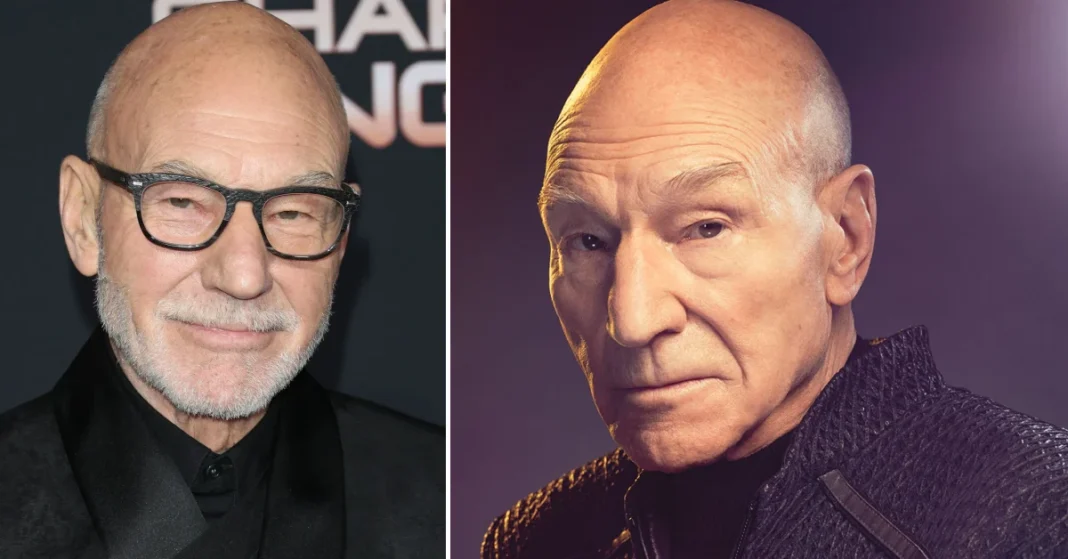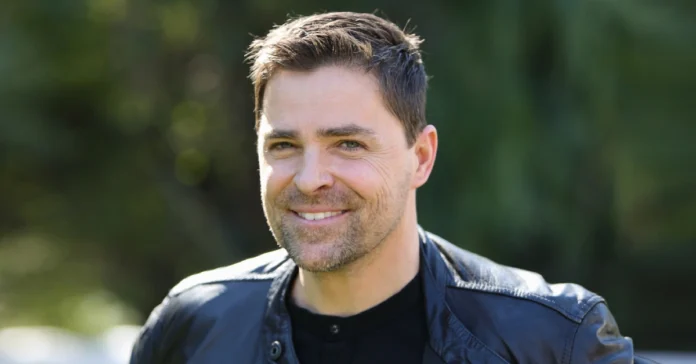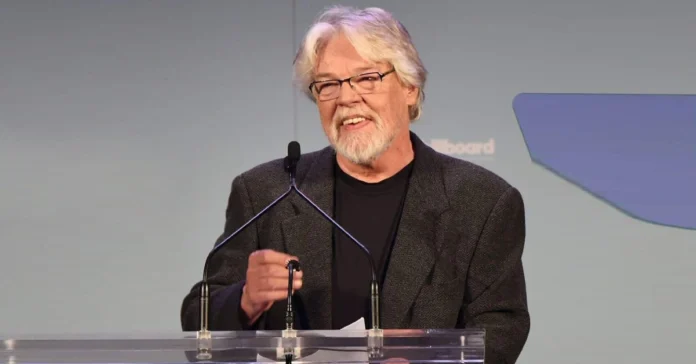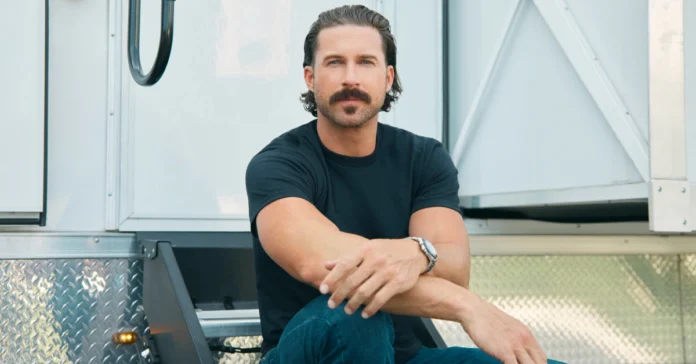Patrick Stewart is one of Britain’s most celebrated actors, with a career spanning over six decades. Born on July 13, 1940, in Mirfield, Yorkshire, Sir Patrick Stewart has transformed from a working-class boy into a global icon. His commanding presence as Captain Jean-Luc Picard in Star Trek and Professor Charles Xavier in X-Men has made him a household name across generations.
At 84 years old, Stewart continues to captivate audiences worldwide. His journey from the stages of England to Hollywood blockbusters tells a story of persistence, talent, and remarkable transformation. With a knighthood from Queen Elizabeth II and countless awards to his name, Patrick Stewart’s biography reveals how a Yorkshire lad became one of entertainment’s most respected figures.
Who is Patrick Stewart?
Patrick Stewart is an English actor whose powerful voice and theatrical training have made him one of the most recognizable performers in modern entertainment. Born Patrick Hewes Stewart, he earned his knighthood in 2010 for services to drama. His ability to bring depth to both Shakespearean characters and science fiction heroes sets him apart in the acting world.
Stewart’s career achievements include two Olivier Awards, Emmy nominations, and a Grammy Award. He’s best known for portraying Captain Jean-Luc Picard in Star Trek: The Next Generation and its spin-offs, as well as Professor X in the X-Men film franchise. His work bridges classical theatre and blockbuster cinema, proving that serious actors can thrive in popular entertainment.
Beyond his famous roles, Stewart has become a cultural ambassador for British theatre. His memoir “Making It So,” published in 2023, offers intimate insights into his personal struggles and professional triumphs. The book reveals a man who overcame childhood trauma to become one of the most beloved figures in entertainment.
Early Life in Yorkshire
Patrick Stewart’s childhood in Mirfield, West Yorkshire, shaped the man who would command starships and lead mutants. His father, Alfred Stewart, worked as a textile worker and served as a regimental sergeant major in the British Army. His mother, Gladys, worked as a textile worker and weaver. The family lived in a modest terraced house, struggling financially like many working-class families in post-war Britain.
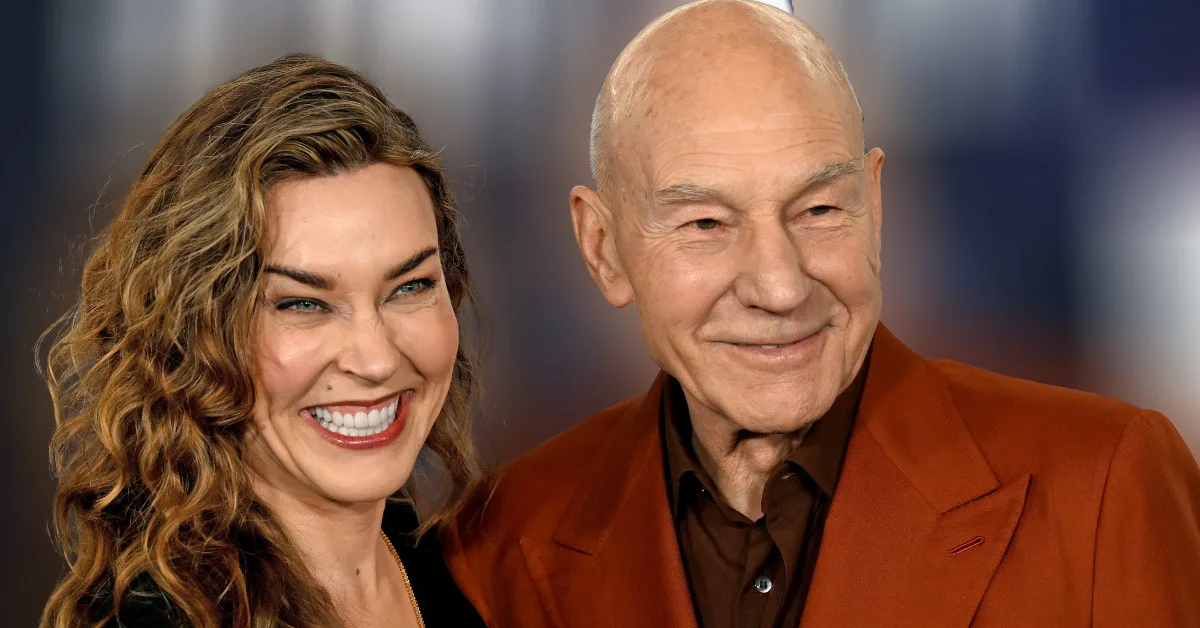
Life at home proved challenging. Stewart’s father suffered from what would now be recognized as PTSD from his wartime service. This led to domestic violence that profoundly affected young Patrick. He found escape through performance, discovering that making people laugh could defuse tense situations at home.
At age 12, Stewart encountered his English teacher, Cecil Dormand, who would change his life forever. Dormand recognized Stewart’s potential and encouraged him to pursue acting. This mentorship provided Stewart with direction and hope during difficult times. He began performing in local amateur dramatics, finding confidence on stage that eluded him in daily life.
Stewart left school at 15 to work as a junior reporter for the Mirfield & District Reporter. But the pull of theatre proved too strong. After saving money from various jobs, including furniture salesman, he auditioned for drama school. This decision would launch him from Yorkshire’s industrial towns to stages around the world.
Forging a Shakespearean Actor
Stewart’s formal training began at Bristol Old Vic Theatre School in 1957. The two-year program immersed him in classical technique, voice work, and stage movement. He learned to project his naturally resonant voice and developed the commanding stage presence that would define his career.
After graduating in 1959, Stewart joined various repertory companies across England. These early years meant constant travel, minimal pay, and performing everything from comedy to tragedy. He played dozens of roles, learning his craft through repetition and variety. Each performance built his skills and confidence.
In 1966, Stewart achieved a career milestone by joining the Royal Shakespeare Company. This prestigious appointment validated his years of hard work. At the RSC, he performed alongside Britain’s finest actors, tackling challenging roles in plays by Shakespeare, Chekhov, and Ibsen. His performances as Shylock, King John, and Oberon earned critical acclaim.
Stewart spent over 15 years with the RSC, becoming one of its leading actors. He performed in landmark productions that toured internationally, introducing global audiences to his powerful interpretations of classic characters. These years established his reputation as a serious theatrical actor, though Hollywood fame remained decades away.
Breakthrough on Screen
Stewart’s transition to television began slowly in the 1970s. He appeared in British TV dramas like “I, Claudius” and “Tinker Tailor Soldier Spy,” bringing theatrical intensity to small-screen roles. These performances caught the attention of casting directors, though leading roles remained elusive.
His film debut came in 1975 with a small part in “Hennessy.” Throughout the late 1970s and early 1980s, Stewart balanced theatre work with occasional film and television appearances. He played supporting roles in movies like “Excalibur” (1981) and “Dune” (1984), gradually building his screen presence.
The turning point came unexpectedly in 1987. Stewart attended a UCLA lecture about Shakespeare, wearing a toupee to hide his baldness. Producer Robert Justman saw him perform and immediately thought of him for a new Star Trek series. Despite initial skepticism about casting a bald, British, Shakespearean actor as a starship captain, Stewart auditioned for the role.
Gene Roddenberry, Star Trek’s creator, initially opposed Stewart’s casting. He wanted someone more traditionally heroic-looking. But Stewart’s audition proved undeniable. His gravitas, intelligence, and natural authority perfectly embodied the diplomatic captain Roddenberry had envisioned. At 47, when many actors see opportunities diminish, Stewart landed the role that would define his career.
Captain Jean-Luc Picard & Star Trek
Star Trek: The Next Generation premiered on September 28, 1987, introducing audiences to Captain Jean-Luc Picard. Stewart’s portrayal revolutionized the Star Trek captain archetype. Unlike the action-oriented Captain Kirk, Picard solved problems through diplomacy, intellect, and moral reasoning. His catchphrase “Make it so” became instantly iconic.
Stewart brought Shakespearean depth to science fiction television. He treated each episode seriously, never condescending to the material. This approach elevated the entire series, attracting viewers who might have dismissed science fiction. Under his leadership, the Enterprise crew explored complex ethical dilemmas alongside space adventures.
The show ran for seven seasons until 1994, becoming one of the most successful syndicated programs in television history. Stewart’s performance earned him multiple Emmy nominations and transformed him from a respected theatre actor into a global star. Fans embraced Picard as a father figure, role model, and exemplar of enlightened leadership.
Stewart reprised Picard in four feature films between 1994 and 2002. Each movie expanded the character’s story while maintaining the thoughtful approach that defined the series. In 2020, he returned to the role in “Star Trek: Picard,” exploring how the character had changed over the decades. This continuation proved that Picard remained relevant to new generations of viewers.
Professor X & the X-Men Franchise
In 2000, Stewart took on another iconic role as Professor Charles Xavier in “X-Men.” The telepathic mutant leader offered a different kind of authority figure – a mentor guiding persecuted individuals toward peaceful coexistence. Stewart’s portrayal balanced Xavier’s immense power with genuine compassion for his students.
The casting proved perfect. Stewart’s natural baldness eliminated the need for expensive effects, while his theatrical background brought weight to comic book material. He played Xavier as a complex figure wrestling with ethical dilemmas about power, responsibility, and social change. This nuanced performance helped legitimize superhero films as serious cinema.
Stewart appeared in seven X-Men films over 17 years, including a memorable dual performance with James McAvoy in “X-Men: Days of Future Past.” His chemistry with Ian McKellen’s Magneto created one of cinema’s great hero-villain relationships—their scenes together, drawing on both actors’ theatrical training, elevated superhero confrontations into philosophical debates.
The role introduced Stewart to younger audiences who knew him as Professor X before discovering Captain Picard. He embraced this new fanbase, attending comic conventions and engaging with superhero culture. His final appearance as Xavier in “Logan” (2017) provided a poignant farewell to the character, showcasing Stewart’s dramatic range in a gritty, emotional performance.
Personal Life & Relationships
Stewart’s personal life reflects both joy and complexity. He married Sheila Falconer in 1966, and they had two children together: Daniel and Sophia. The marriage lasted 24 years but ended in divorce in 1990, partly due to the pressures of his newfound Star Trek fame. Stewart has spoken candidly about regretting his absence during his children’s early years.
In 2000, he married television producer Wendy Neuss, whom he met on the Star Trek set. This marriage lasted three years. Stewart later dated actress Lisa Dillon, who was significantly younger, sparking media attention about their age difference. He found lasting love with singer-songwriter Sunny Ozell, whom he married in 2013. Ian McKellen officiated their ceremony, highlighting their enduring friendship.
Stewart became an American citizen in 2003 while maintaining his British citizenship. He divides his time between homes in Los Angeles and Brooklyn, embracing New York’s theatre scene. His Brooklyn residence keeps him connected to live performance, and locals often spot him at neighborhood restaurants and parks.
His philanthropic work focuses on combating domestic violence, inspired by his childhood experiences. Stewart supports Refuge, a UK charity helping women and children escape abuse. He’s spoken publicly about witnessing his father’s violence toward his mother, using his platform to break stigmas around discussing domestic abuse. His advocacy work earned him humanitarian awards alongside his artistic honors.
Awards, Honours & Recognition
Stewart’s trophy cabinet reflects a career of extraordinary achievement. His two Laurence Olivier Awards recognize his theatrical excellence, while his 2010 knighthood from Queen Elizabeth II represents Britain’s highest honor for artistic contribution. The ceremony at Buckingham Palace fulfilled a dream Stewart had harbored since childhood.
Television brought Emmy nominations for Star Trek: The Next Generation and wins for producing. He received a Grammy Award for Best Spoken Word Album for his audiobook performances. The Screen Actors Guild honored him with multiple nominations and a Lifetime Achievement Award. These accolades span different media, proving his versatility as a performer.
Academic institutions have awarded Stewart numerous honorary degrees, recognizing his contributions to the arts and culture. He holds honors from universities including Oxford, Leeds, and Huddersfield. These ceremonies often feature Stewart delivering inspiring speeches about overcoming adversity through education and determination.
His Hollywood Walk of Fame star, unveiled in 1996, sits appropriately near the Star Trek section. Fans regularly visit to pay tribute, leaving flowers and memorabilia. Stewart’s handprints at the TCL Chinese Theatre joined those of cinema legends, cementing his place in entertainment history. Each honor reflects not just achievement but the respect he’s earned from peers and audiences alike.
Recent Projects & What’s Next
Stewart’s recent work proves that age hasn’t dimmed his passion for performance. “Star Trek: Picard” (2020-2023) gave him creative control over his most famous character’s final chapter. The series addressed aging, legacy, and redemption while delivering the action fans expected. Stewart’s performance earned critical praise for bringing new depth to a familiar character.
His 2023 memoir “Making It So” became a bestseller, offering honest reflections on his life and career. The book discusses his childhood trauma, professional struggles, and personal relationships with remarkable candor. Readers praised Stewart’s willingness to examine his flaws alongside his successes, creating a portrait of a complex, evolving person.
Marvel fans celebrated when Stewart appeared as Professor Xavier in “Doctor Strange in the Multiverse of Madness” (2022). This surprise cameo delighted audiences and set up potential future appearances. Reports confirm Stewart will return as Xavier in “Avengers: Doomsday,” scheduled for release in 2026, proving that his superhero days aren’t over.
At 84, Stewart continues accepting challenging roles. He’s expressed interest in returning to theatre, possibly directing as well as acting. His voice work for animated projects keeps him busy between live-action roles. Stewart approaches each project with the same professionalism that defined his early career, treating every performance as an opportunity to grow.
Legacy & Influence
Patrick Stewart’s influence extends far beyond his famous roles. He’s shown that classical training enhances popular entertainment, inspiring actors to take genre work seriously. His success encouraged other Shakespearean actors to embrace science fiction and superhero roles without fearing career damage.
Young actors study Stewart’s performances to understand how theatrical technique translates to the screen. His ability to convey complex emotions through subtle expressions has become a masterclass for aspiring performers. Drama schools use his work to demonstrate how stage training prepares actors for any medium.
Stewart’s advocacy for social causes has inspired other celebrities to use their platforms meaningfully. His openness about childhood trauma helped destigmatize discussions of domestic violence. By sharing his struggles, he’s shown that success doesn’t require perfection, only persistence and growth.
The characters Stewart portrayed have become cultural touchstones. Captain Picard represents thoughtful leadership in turbulent times. Professor Xavier embodies the teacher who believes in his students’ potential. These roles transcend entertainment, offering models for how to lead with wisdom and compassion. As Stewart continues working, his legacy grows richer, proving that great actors, like fine wine, improve with age.
Patrick Stewart’s journey from Yorkshire poverty to international stardom demonstrates that talent, hard work, and authenticity can overcome any obstacle. His story continues to unfold, with each chapter adding depth to an already remarkable biography. Whether commanding the Enterprise or teaching young mutants, Stewart brings humanity to every role, reminding us why great acting matters.
